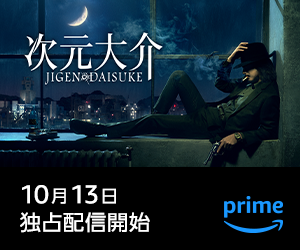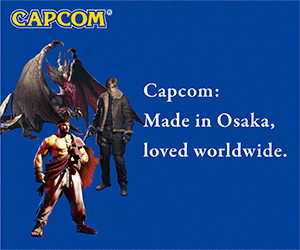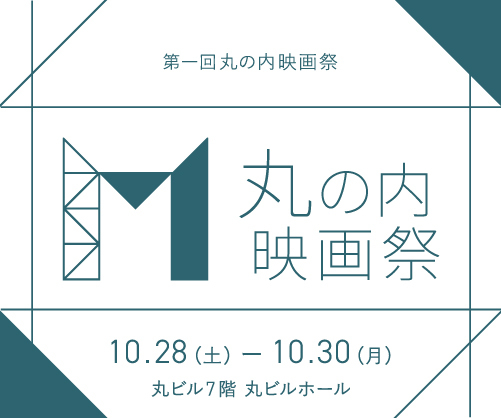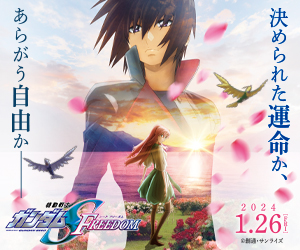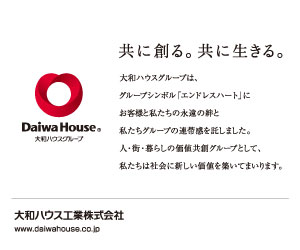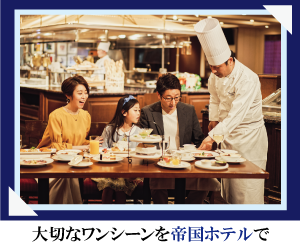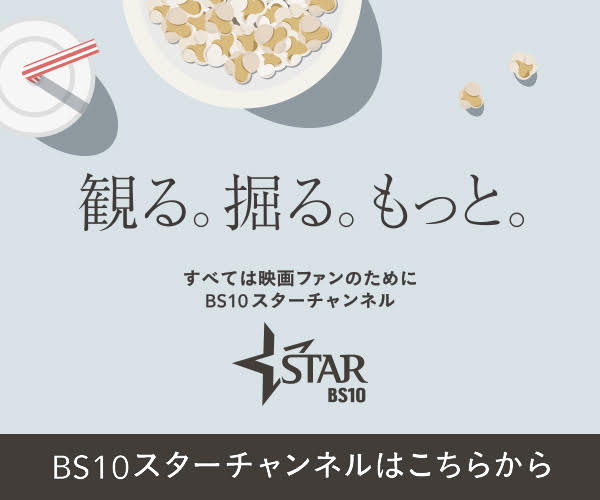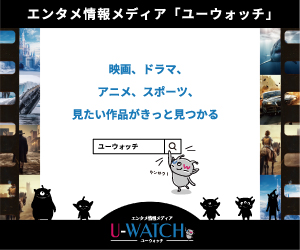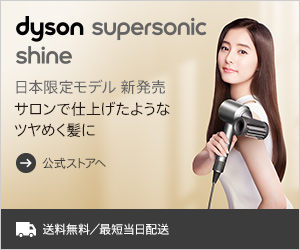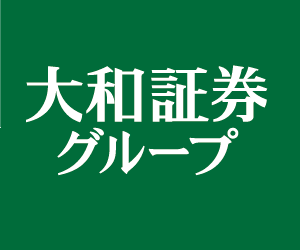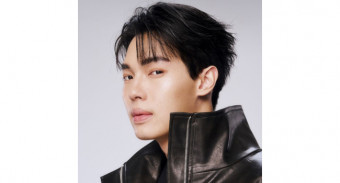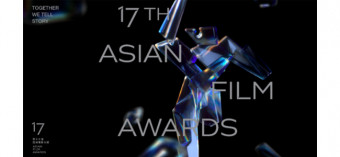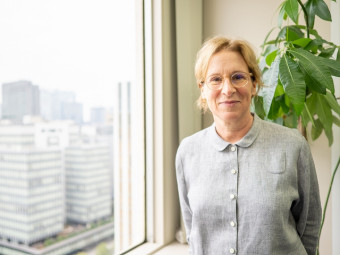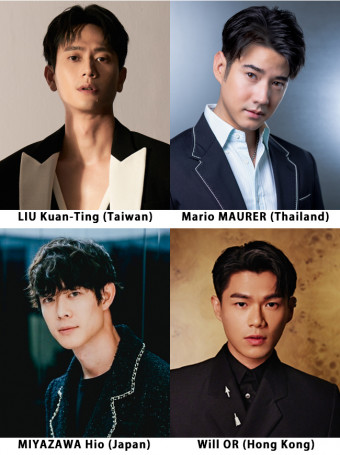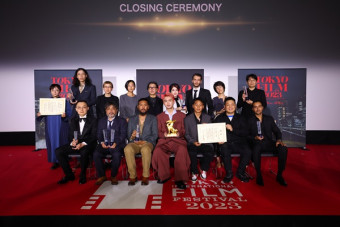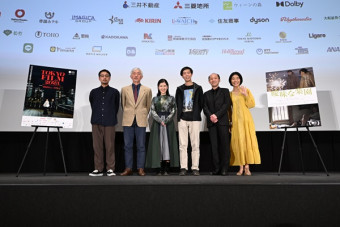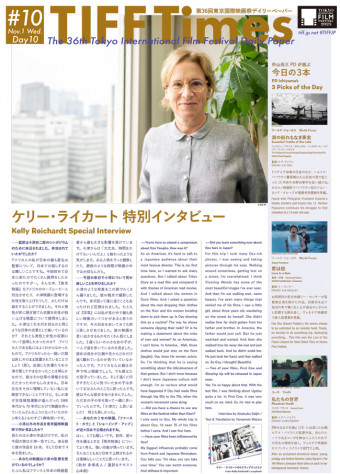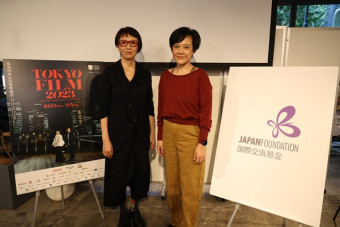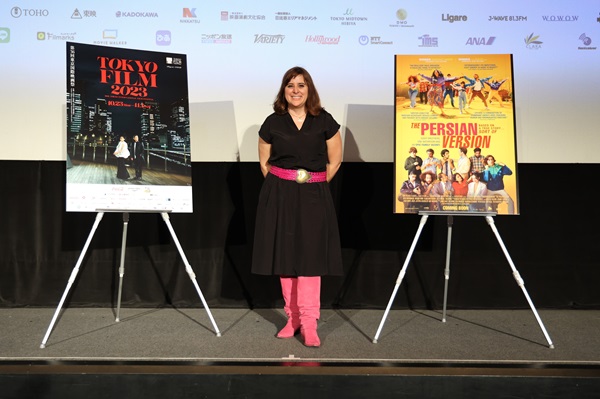
Iranian-American director Maryam Keshavarz brought her lively Sundance hit The Persian Version to the 36th Tokyo International Film Festival on October 27, where the Asian premiere is screening in the Competition section. At the Q&A afterward, the moderator noted that she had just arrived in Tokyo that morning. Not looking the least big jet-lagged, the writer-director-producer said, “I’d do anything to see my audience in Japan. I’ve been wanting to come here for a long time. I think there are some similarities between our cultures (Persian and Japanese) and I look forward to hearing your comments.”
Her semi-autobiographical film paints a colorful picture of an Iranian-American family through the eyes of Leila (Layla Mohammadi), the only daughter among nine siblings. Leila is a screenwriter, a lesbian who’s been divorced, and based on behavior in the opening, when she wins best costume at a Halloween party for strutting around in a pink two-piece and a tapestried burka, she tends to some erratic behavior.
Leila’s father had been a doctor in a remote Iranian village before coming to the US in 1967 to help with the shortage of doctors due to the Vietnam War. The family eventually settles in New Jersey, and when the self-described “f***-up daughter” comes home to care for her grandmother as her father has surgery, she begins learning her family’s history for the first time. Gradually, the disparate lives of three generations of women are brought into focus, against the backdrop of complicated political, as well as personal, upheavals.
The Persian Version earned Keshavarz the Waldo Salt Screenwriting Award and the US Dramatic Competition Audience Award at the 2023 Sundance, not surprisingly. Asked why she thought it had been so honored, the director responded, “It’s a story of immigration, which is what defines America. It’s about people who leave behind the old world to try to find something new. And because most Americans thing most Iranians are terrorists, they were surprised to see a family that not only loves music but has better dance moves than they do.”
The audience was now eating out of her hand, and there were so many audience hands in the air that the moderator resorted to asking some people to play rock-paper-scissors.
Asked what area of the film was not autobiographical, Kesharvarz responded, “That’s top secret!” and laughed. “My father died when I was in my twenties and I’d wanted him to meet my daughter. So in the movie, he gets to live. And my mother can’t stop time (referring to scenes of magical realism), although sometimes I think she does. It’s autobiographical, but it’s formulated from three different perspectives, really, since there are different versions of ‘the truth.’”
An audience member said, “I’m from China and this is the first time I’ve seen an Iranian film” — “Iranian-American,” corrected the director —“Yes, Iranian-American, and I just wondered, did you shoot this in Iran or somewhere else?”
Keshavarz admitted, “I can’t return to Iran because my first film, Circumstance, about two girls in love, made it impossible for me. So this was shot in New York, New Jersey and Turkey.”
She went on, “I’m a very controversial figure in Iran. My first film was the biggest black-market film of the year. With online streaming, it became even bigger. I’m sure that, much to the dismay of Sony, this will eventually be on the black market in Iran, too.”
There’s a scene in the film where Leila is out on a date, already pregnant, and is cautioned about consuming sushi. Was that because of mercury content, or something else? Keshavarz laughed. “The mercury in the tuna — it’s an ongoing joke, because I’m obsessed with sushi. When I was releasing my first film, I was 8 months pregnant, and I would go to different festivals and I would try to eat sushi at the parties and everyone would try to stop me. They all seemed very concerned about my sushi consumption. I was under so much stress, so many things going on, and all they were worried about was whether I was eating sushi.”
Keshavarz was asked to discuss the writing of her hilarious-but-also-moving screenplay. “I think so much of the film was a process of elimination,” she responded. “The original script was about 180 pages. Through the process, I realized it was really about three women. Once I realized that, I could cut it down to 89 pages.
“But my primary job is to work with actors, and I first needed to cast people who looked like they could be family. Even though it was an independent film, we spent as much time as possible together rehearsing, doing some improvisation, before we went on set. So we really did become a family. I have two WhatsApp groups—one with my real family, one with my film family.”
Asked for her final comments before the session came to an end much too soon, Keshavarz said, “I think the last few years in the world have been really difficult. Especially in America. We’ve become a country that’s very divided, divisive and hateful. I wanted to depict a world with hope. We see the mother at the beginning and she’s homophobic and says horrible things to her daughter, then we slowly peel all that away and we can empathize with her, be moved by her.
“By naming the new child that way (with the name Leila’s mother had given to her first daughter, who was stillborn), I feel like the end of the movie is the end of a trauma, this trauma that gets passed from one generation of females to the next. My own mother and I will never share the same ideology, but after the birth of my daughter, there was a shift. I felt we could love each other and get along. The same with the world: we don’t have to agree, but there can be harmony.”
Q&A Session: Competition
The Persian Version
Guest: Maryam Keshavarz (Director/Screenplay/Producer)












